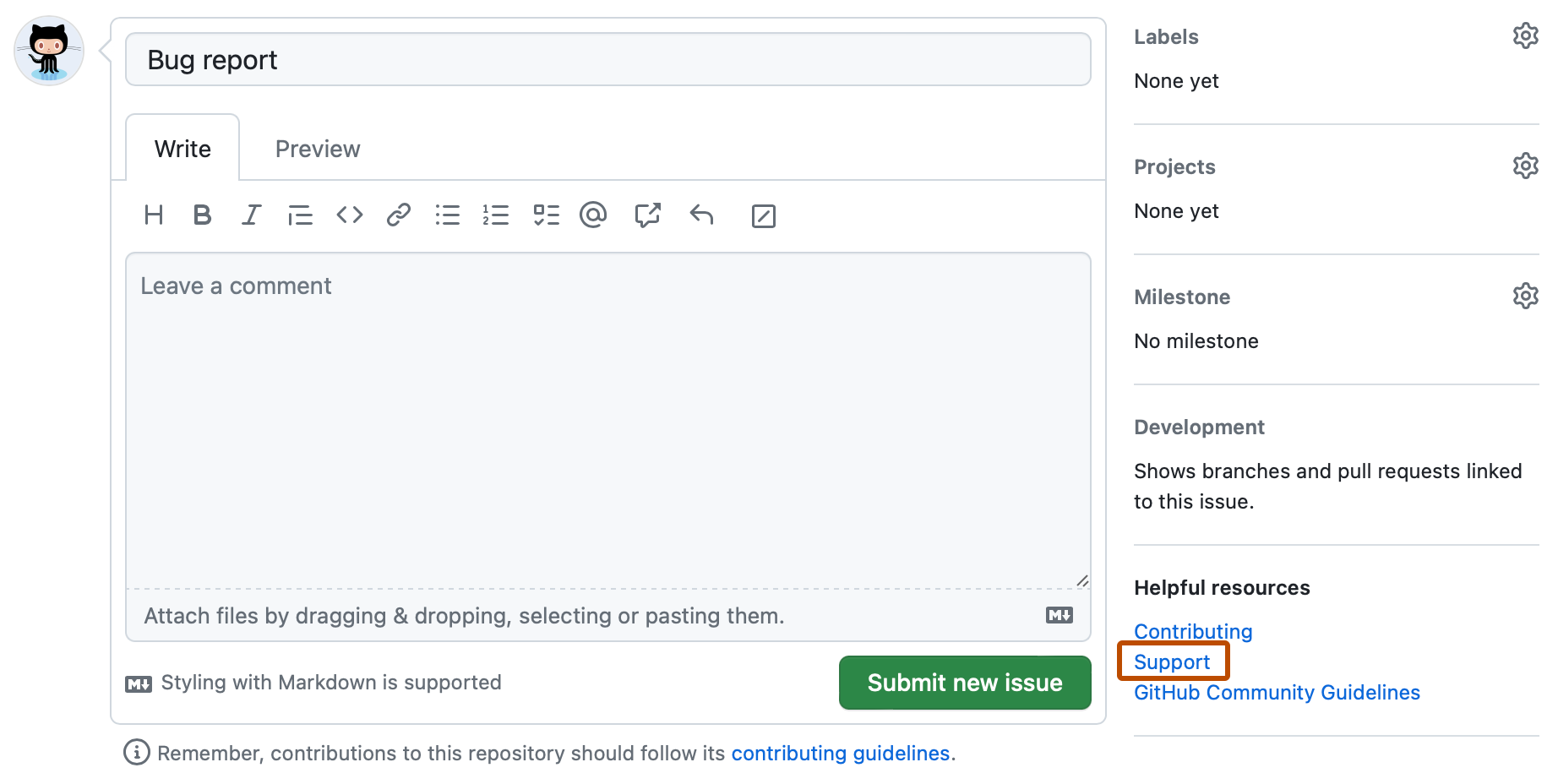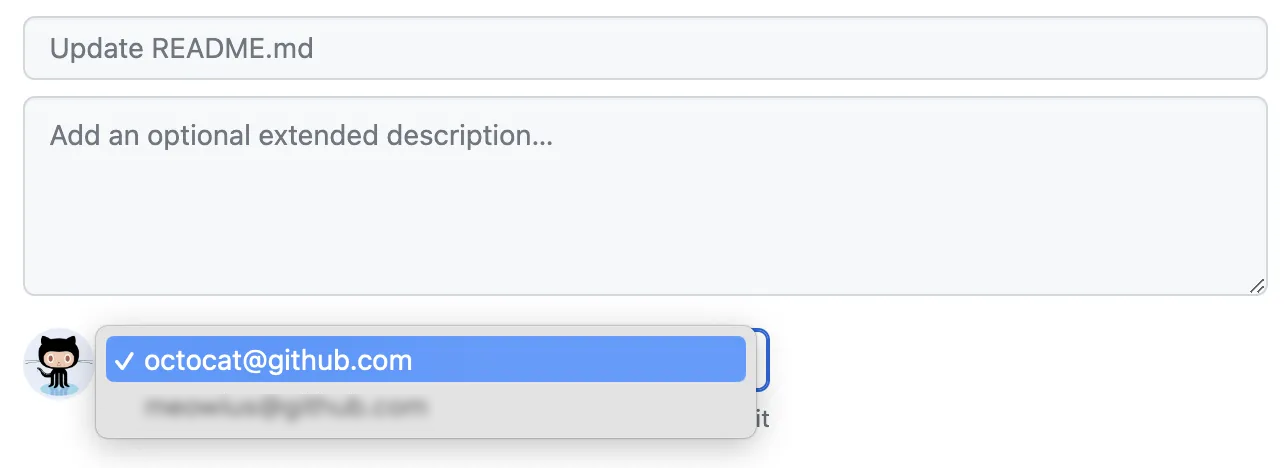To direct people to specific support resources, you can add a SUPPORT file to your repository's root, docs, or .github folder. When someone creates an issue in your repository, they will see a link to your project's SUPPORT file.

You can create default support resources for your organization or personal account. For more information, see "Creating a default community health file."
Tip
To help people find your support guidelines, you can link to your SUPPORT file from other places in your repository, such as your README file.
Adding support resources to your project
-
On GitHub, navigate to the main page of the repository.
-
Above the list of files, select the Add file dropdown menu, then click Create new file.
Alternatively, you can click in the file tree view on the left.

-
In the file name field, type SUPPORT.md (with all caps).
-
On the Edit new file tab, add information about how people can get support for your project.
-
To review your SUPPORT file, click Preview.
-
Click Commit changes...
-
In the "Commit message" field, type a short, meaningful commit message that describes the change you made to the file. You can attribute the commit to more than one author in the commit message. For more information, see "Creating a commit with multiple authors."
-
If you have more than one email address associated with your account on GitHub, click the email address drop-down menu and select the email address to use as the Git author email address. Only verified email addresses appear in this drop-down menu. If you enabled email address privacy, then a no-reply will be the default commit author email address. For more information about the exact form the no-reply email address can take, see "Setting your commit email address."

-
Below the commit message fields, decide whether to add your commit to the current branch or to a new branch. If your current branch is the default branch, you should choose to create a new branch for your commit and then create a pull request. For more information, see "Creating a pull request."

-
Click Commit changes or Propose changes.